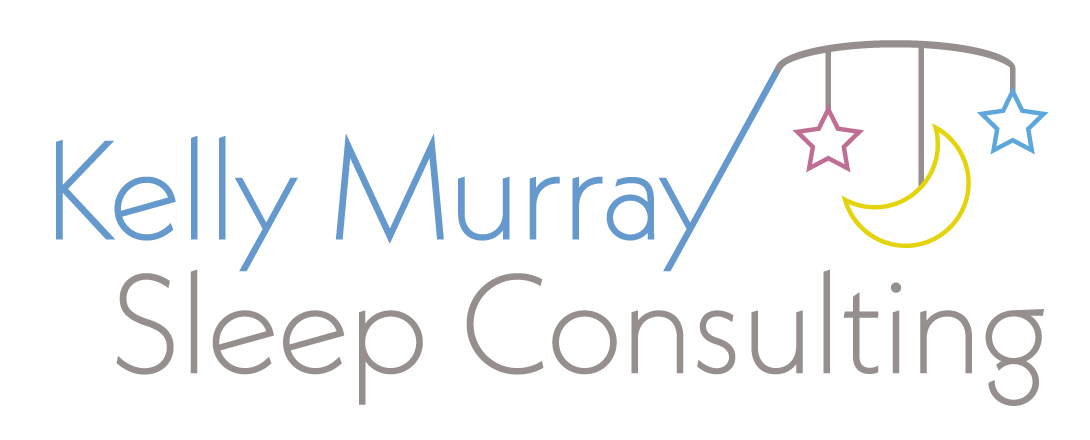Which Sleep Regression Is the Worst?
By Katie Giguere, Sleep Squad Consultant
Let’s discuss a topic many parents dread but need to understand: sleep regressions. Even the mention of “sleep regression usually brings visions of sleepless nights to many parents, including myself. Those feelings are valid and I absolutely relate. But with understanding comes confidence, so let's explore what a sleep regression really is and which one hits the hardest; then you can be prepared to face them confidently.
Understanding Sleep Regression
A sleep regression marks a period when your child's sleep quality declines, and it may manifest in a number of ways.
Signs of sleep regression:
Frequent night wakings
Resisting bedtime / fighting sleep
Refusing naps
These phases can last from two to six weeks and are perfectly normal. But here’s the thing — seeing these signs doesn't mean you're doing anything wrong. In fact, these are signs of progress — it means your child is developing!
The Infamous 4-Month Sleep Regression
The most notorious of all is the 4-month sleep regression. It usually occurs between three to five months of age. During this phase, babies experience rapid cognitive development and a shift in sleep cycle structures — from two stages (REM sleep and non-REM sleep) to more adult-like cycles. This maturation leads to natural awakenings during the night, as there is a brief intermittent arousal between sleep cycles.
Though challenging, this stage signifies that your baby's sleep patterns are evolving. Believe it or not, we all have a brief intermittent waking between our sleep cycles! It’s just that we’ve grown into independent sleepers, and so the majority of the time, we are able to put ourselves back to sleep without even realizing we’ve awoken. When babies learn how to fall asleep independently, they begin to learn how to put themselves back to sleep when these natural arousals occur, just like we do.
(You can learn more about exactly what happens during the four month sleep regression here: Surviving the Infamous 4 Month Sleep Regression.)
Once your baby enters this period, they develop the ability to self-soothe. This is the time to teach them independent sleep skills.
Other Notable Regressions
8-Month Sleep Regression
At about eight months, significant motor developments occur, such as crawling and standing. Whether it’s crawling, pulling up to stand on furniture, or cruising the couch, all of these milestones occur around eight months. It's also common for babies to transition from three naps to two during this time, disrupting sleep routines temporarily.
12-Month Sleep Regression
Around their first birthday, many toddlers begin to walk. The excitement of this new skill can lead to sleep interruptions as they may prefer practicing over sleeping! We can't blame them for this. They're eager to explore their new skills. The best thing that you can do as a parent to support them is to let your child practice those new skills and abilities as much as they want. This will actually help them to sleep better in the crib, as they won’t be using that time solely to practice their skills since you’re providing ample opportunity for them to do it elsewhere.
18-Month Sleep Regression
By 18 months, toddlers experience vast cognitive and verbal advancements. The burst of brain activity can make settling down for sleep more difficult.
2-Year Sleep Regression
Approaching two years, toddlers assert more independence and may resist naps or bedtime as they're reluctant to pause their activities. They suddenly have the ability to state their opinions by way of behavior, and they express this by fighting sleep.
Sleep Regressions Can Happen Any Time
Although those are the most noteworthy sleep regressions, our children are constantly learning and growing, which can cause minor sleep regressions to happen at any time. That's why it's so important to teach our children independent sleep skills. We want them to be able to get themselves back to sleep, regardless of what's happening developmentally, so they can continue to grow and thrive.
Ultimately, the “worst” sleep regression depends largely on how well a child can put themselves back to sleep. The 4-month sleep regression is a shock to the system — especially for us parents. But once you navigate through it, subsequent regressions tend to be more manageable if your child knows how to put themselves to sleep independently.
Need Help Navigating a Sleep Regression?
We specialize in empowering parents with strategies to teach their children to sleep independently. Knowing that your child can fall asleep on their own will leave you confident that you and your family can handle any regressions that come your way.
If you’re struggling to help your child through a sleep regression, or if you need assistance teaching them how to sleep independently, we are here to help. Schedule a 15-minute complimentary discovery call with me or another member of the Kelly Murray Sleep Squad.
All team members have completed training with Kelly and have learned the Murray Method. Kelly continues to support, guide and oversee the Sleep Squad as they work with the families who trust in us. This way, all clients are able to experience the same amazing results (and lots and lots of sleep).
Sweet Dreams…
Kelly Murray is a certified sleep coach and an award-winning pediatric sleep consultant based in Chicago offering sleep coaching services nationwide.














